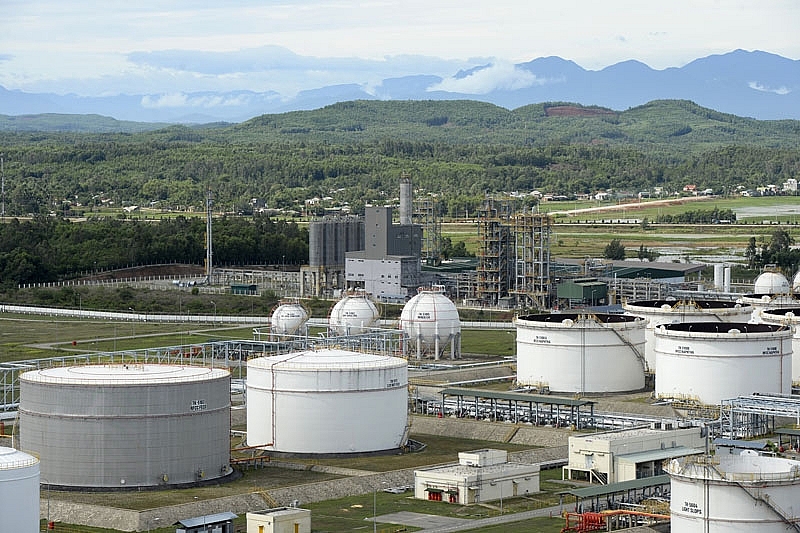Dung Quat Oil Refinery may suspend operation due to COVID-19 pandemic
 |
| The measures already taken by Dung Quat Oil Refinery are not enough to counter the negative effects of COVID-19 |
Since early February 2020, the pandemic has sent demand for transport and logistics into a plummet, leading to a 30-40 per cent decrease in petroleum sales compared to the same period last year. The situation also impacted the operation and business of refineries and petroleum trading facilities.
As of now, Dung Quat Oil Refinery has been forced to operate at a reduced capacity. In addition, petroleum importers have to either reduce or suspend product imports.
In the first quarter of this year, the total capacity of Dung Quat Oil Refinery and Nghi Son Refinery and Petrochemical Complex was 3 million tonnes, meeting 100 per cent of the local market’s demand. However, according to statistics released by the General Department of Vietnam Customs, Vietnam imported 1.63 million tonnes of petroleum in the first two months and the first half of March, accounting for 35 per cent of the supply from local markets. Thus, the excess amount in the first three months was 1.65 million tonnes, putting pressure on refineries. Notably, according to BSR, unsold gasoline was at times 90 per cent of its inventory capacity and the company was forced to store unsold goods in other places, incurring additional transport expenses.
The difficulties become more serious after the government issued the self-isolation policy, which came into effect nationwide from 0:00 April 1, 2020 and will last for 15 days. Accordingly, the government asked all people to go into self-isolation and avoid contact with other people.
This move will prolong the plunge in petroleum demand into April.
According to a representative of BSR, halting the operation of refineries is a temporary solution which will not help in balancing out the market. Thus, he urged the government to release policy to decrease or stop to petroleum imports until the pandemic is brought under control. In addition, BSR requested support and incentives in terms of interest-free loans and decrease or exemption from tariffs.
Furthermore, the representative stressed that the government also needs to control the quality of petroleum sold on the market, while simultaneously implementing solutions to prevent commercial fraud and dumping.
What the stars mean:
★ Poor ★ ★ Promising ★★★ Good ★★★★ Very good ★★★★★ Exceptional
Themes: COVID-19
- 67 million children missed out on vaccines because of Covid: UNICEF
- Vietnam records 305 COVID-19 cases on October 30
- 671 new COVID-19 cases recorded on October 1
- Vietnam logs additional 2,287 COVID-19 cases on Sept. 21
- People’s support decisive to vaccination coverage expansion: official
Related Contents
Latest News
More News
- SK Innovation-led consortium wins $2.3 billion LNG project in Nghe An (February 25, 2026 | 07:56)
- THACO opens $70 million manufacturing complex in Danang (February 25, 2026 | 07:54)
- Phu Quoc International Airport expansion approved to meet rising demand (February 24, 2026 | 10:00)
- Bac Giang International Logistics Centre faces land clearance barrier (February 24, 2026 | 08:00)
- Bright prospects abound in European investment (February 19, 2026 | 20:27)
- Internal strengths attest to commitment to progress (February 19, 2026 | 20:13)
- Vietnam, New Zealand seek level-up in ties (February 19, 2026 | 18:06)
- Untapped potential in relations with Indonesia (February 19, 2026 | 17:56)
- German strengths match Vietnamese aspirations (February 19, 2026 | 17:40)
- Kim Long Motor and AOJ Suzhou enter strategic partnership (February 16, 2026 | 13:27)

 Tag:
Tag:

























 Mobile Version
Mobile Version